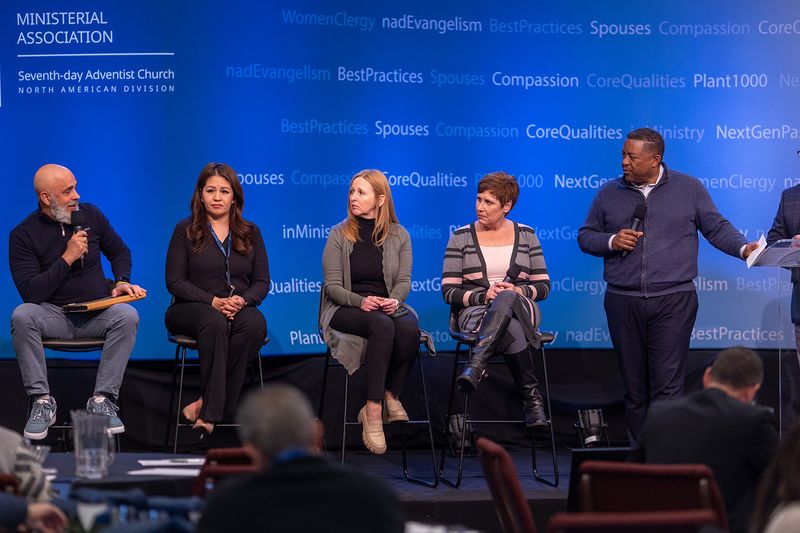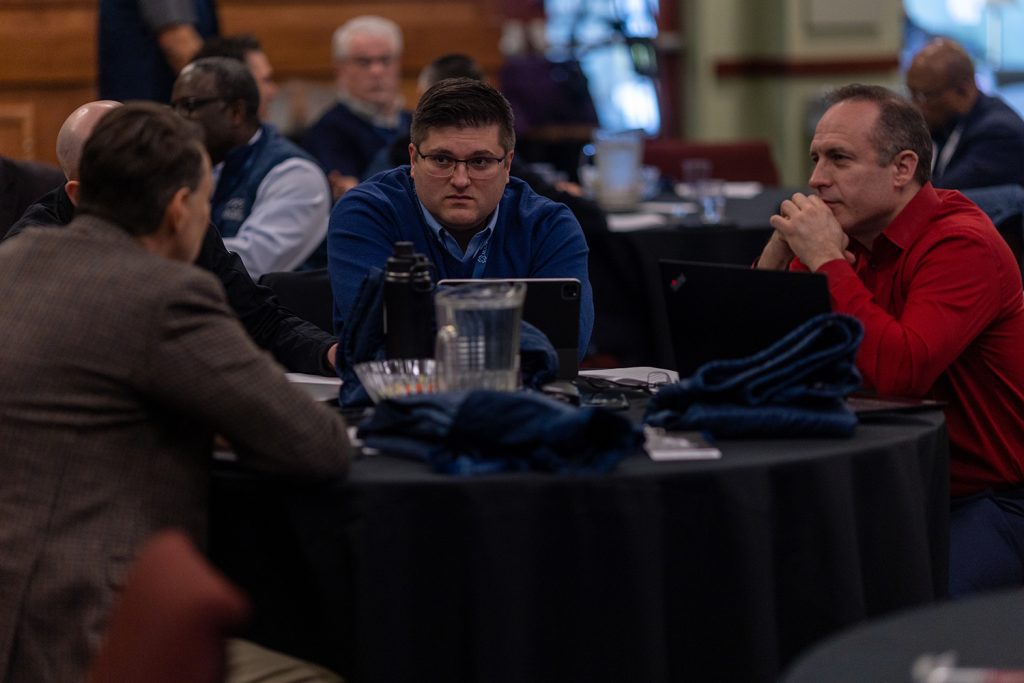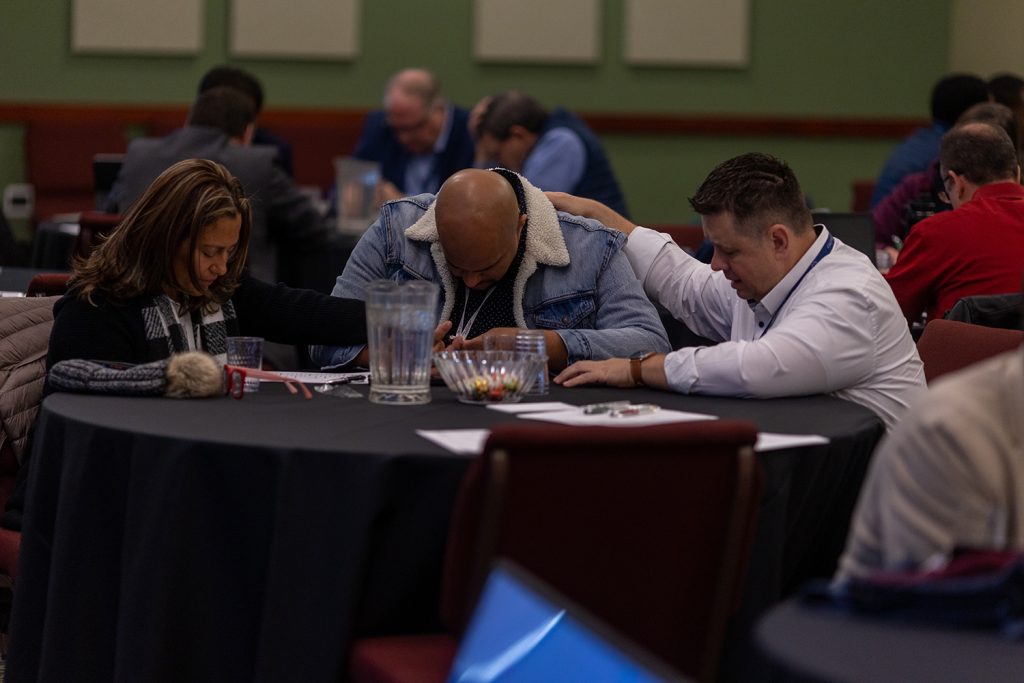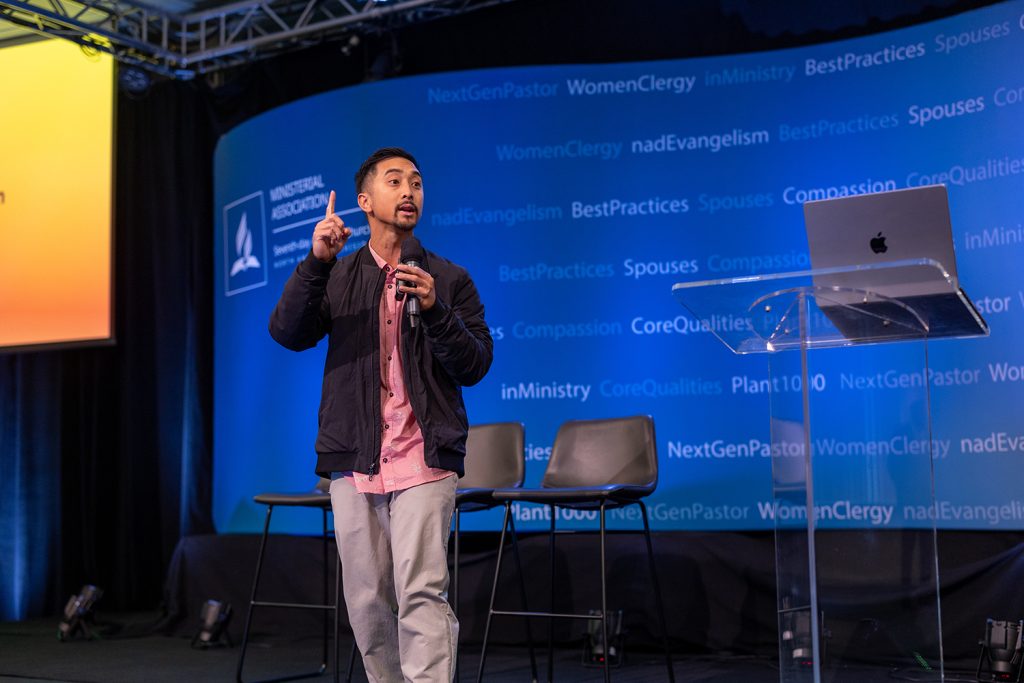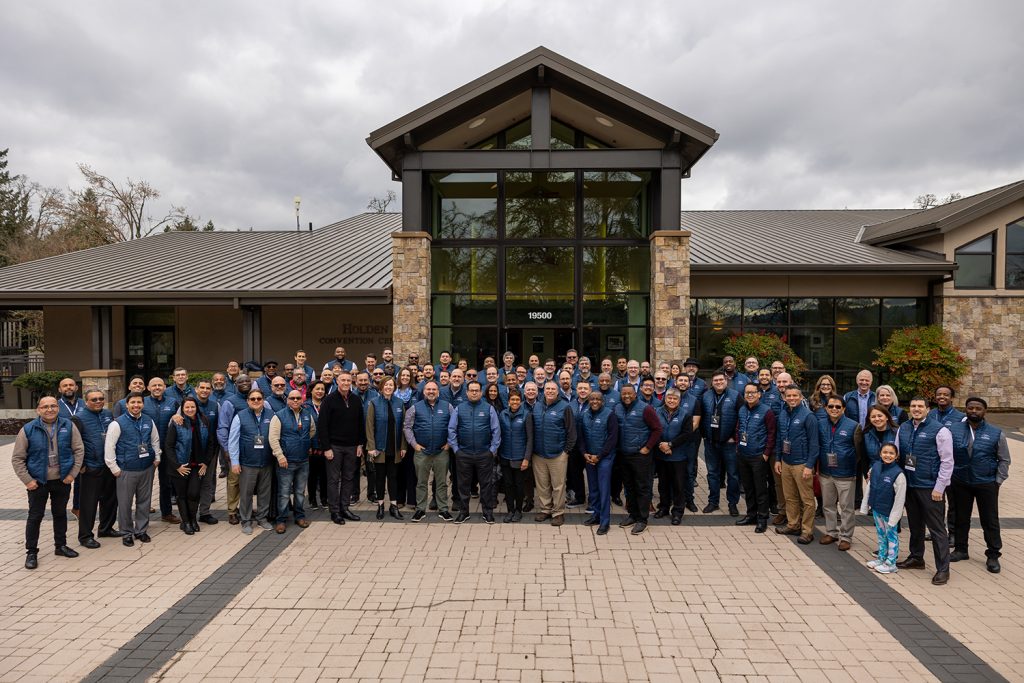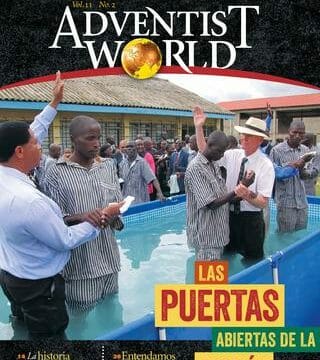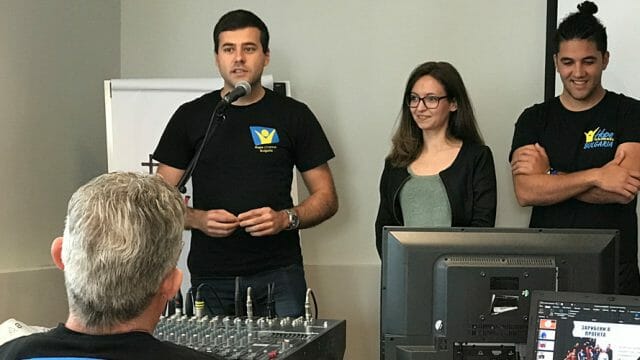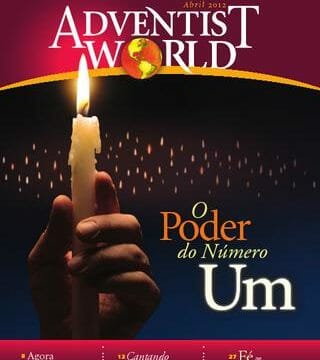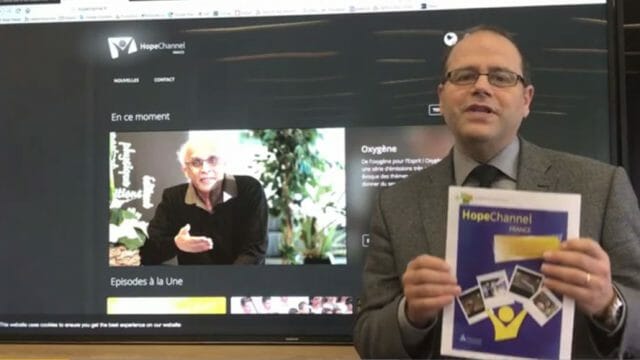NAD eHuddle event discusses best ministerial practices, listening to innovators.
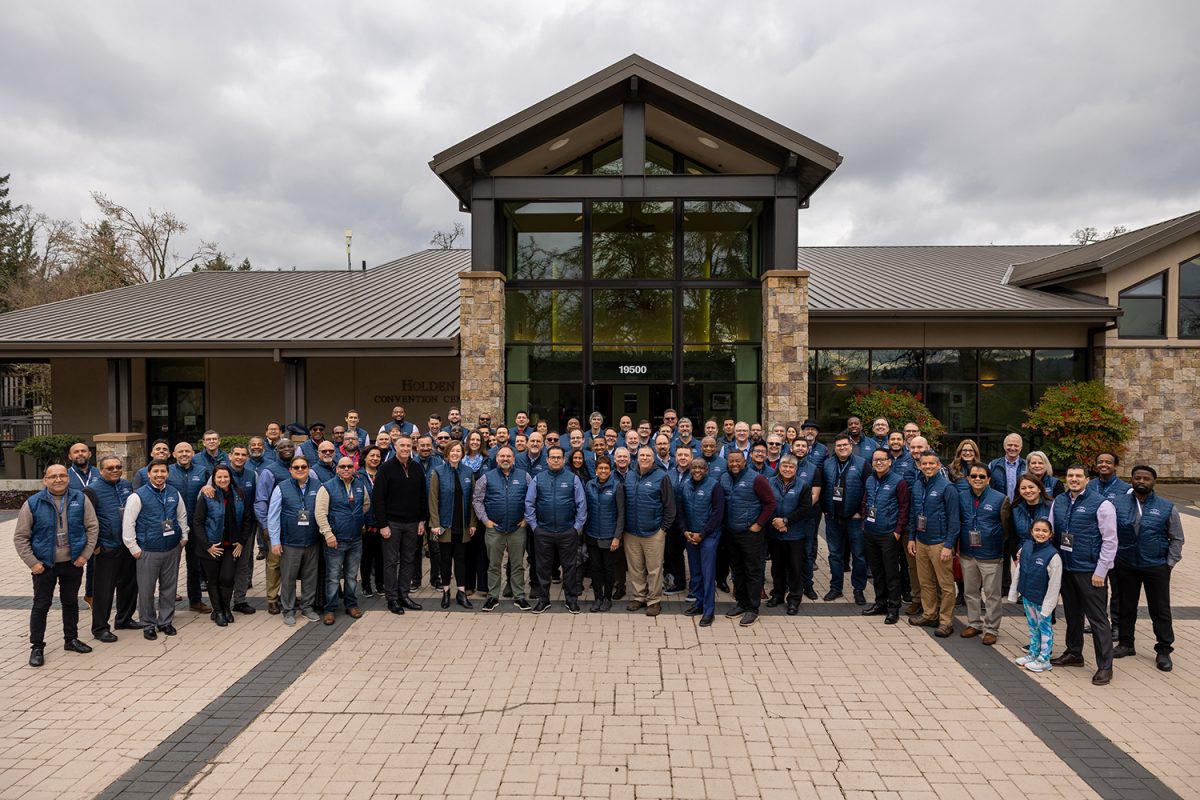
In our rapidly changing world, opportunities to connect and share in a united vision are more crucial to the church than ever. While the Seventh-day Adventist Church may not always look the same or minister the same ways in different communities, sharing a clear purpose and mission is what allows us to pool our resources and experiences in ways that we, individually, could never hope to.
This is the philosophy behind the event that brought a group of church leaders and ministers from around the North American Division (NAD) to the Holden Convention Center in Gladstone, Oregon, United States, in the middle of February for eHuddle 2023.
According to NAD associate ministerial director José Cortes Jr., eHuddle is an annual evangelism and leadership visioning event. From showcasing studies of successful launches of urban centers of influence to successful church revitalization efforts in local churches, the three-day event was focused on the most recent developments and best practices happening across the division.
Though presentations spanned a wide variety of topics including digital innovation, when to baptize, and even emerging initiatives like gaming ministries, one of the themes strongly emphasized this year was community engagement.
Local pastor Daniel Hall shared the major shift he and his church have taken in how they go about evangelism in rural South Carolina as the community emerges from the COVID-19 pandemic: “We had eight people showing up to our church consistently — and that included my wife and I. Everyone but the two of us were over the age of 65. We were the youngest people in our church — and that was problematic. Here’s why: the average age in our city of Marion, South Carolina, was 43 years old. But the average age in our church was 69 years old.
“There was no active ministry, no food pantry, no community service, and definitely no Pathfinders because there were no young people there at all. That was the culture. We needed to do evangelism right away. My church and I came together and decided that on July 21, 2021, we were going to have our first evangelistic meeting. We were excited! We decided to do pre-work with the traditional evangelistic model.
“The traditional model of evangelism is to invite Bible workers and your church members to knock on doors and pass out Bible studies and flyers. So that’s what we did. The strategy behind it was that the more doors you knock on and the more flyers you pass out, the more people will come to your church, but we quickly discovered that this did not work in our context. We knocked and knocked on doors, but no one would open the door for us. Those who did were extremely skeptical about talking to us. Those who did talk to us told us that the reason they weren’t coming to church was that they didn’t believe in church anymore.”
Hall shared the moment that the evangelistic culture began to change its approach. “I was speaking with a young lady, and she said to me, ‘Pastor, I’m not coming to your church.’ When I asked her to explain, she said, ‘Because the only thing that the church cares about is making bigger churches and building larger parking lots.’ The moment she said that, an idea popped into my head called The Compassion Project.”
Inspired by a similar initiative led by one of eHuddle’s organizers, José Cortes Jr., back in 2013, Hall and his church reworked their approach to local evangelism. They spent 10 days doing acts of kindness in their community.
“When Jesus arrived in a new town He didn’t hand out flyers that said, ‘Come and see Me preach tonight at the temple!’ ” Hall said. “You would find Him speaking, serving, and mingling with the people!”
Merging service with their evangelist crusade, the team went to work creating back-to-school backpack giveaways, a diaper drive, a crowdfunded focus on helping community members pay their bills, free haircuts, a community baby blessing, and more. The church went further in their intentionality, developing more modern advertisements for their events through social media and bringing in an evangelist who reflected the average age of their community.
“Our church of only eight people was packed from wall to wall,” Hall said. “We asked everyone to stay for a word, and no one had a problem with it — because when you meet legitimate needs and mingle with folks and show them compassion, they’re going to say, ‘Tell me about your Jesus.’ ”
Not only did the community show up, but many joined the church and are still active participants to this day. “I call every single person that was baptized last year and simply ask them, ‘How was your day? Tell me about your life. Let me pray with you.’ And what I discovered was that they appreciate when the pastors themselves reach out and ask how they’re doing. The only thing that keeps people in church is relationships. By God’s grace I’ve been able to keep them by simply keeping in contact with them.”
At the eHuddle event, more than a dozen guests shared what was happening in their local contexts. Nitza Salazar of the Idaho Conference shared the work she and others have been doing alongside children with special needs through the performing arts. Elizabeth Talbot pushed against the Adventist temptation to wait until someone has reached our spiritual standards before baptizing them into the body of Christ.
Also, Tandi Perkins of the Alaska Conference shared insights into Native Ministries and their turn toward cultural sensitivity in light of the church’s past abuses and missteps. Roger Hernandez emphasized the church’s need to intentionally develop curiosity in approaching their communities.
With its emphasis on social and digital ministry innovations, several current and former members of the Oregon Conference were mentioned as examples of engaging new forms of ministry. They include the teams behind the How the Church Works Podcast, digital missionary Justin Khoe, and local Portland pastor Colby Maier, whose YouTube ministry has grown to more than one million subscribers this year.
Careful not to directly equate views and online subscribers with long-lasting conversion, Adam Fenner, director of the Adventist Learning Community, said, “Every Adventist is already an ambassador. Some of us have huge platforms, and some only have a few dozen in their network — but we are all called to be ambassadors for Jesus.”
The original version of this story was posted on the Oregon Conference news site.


